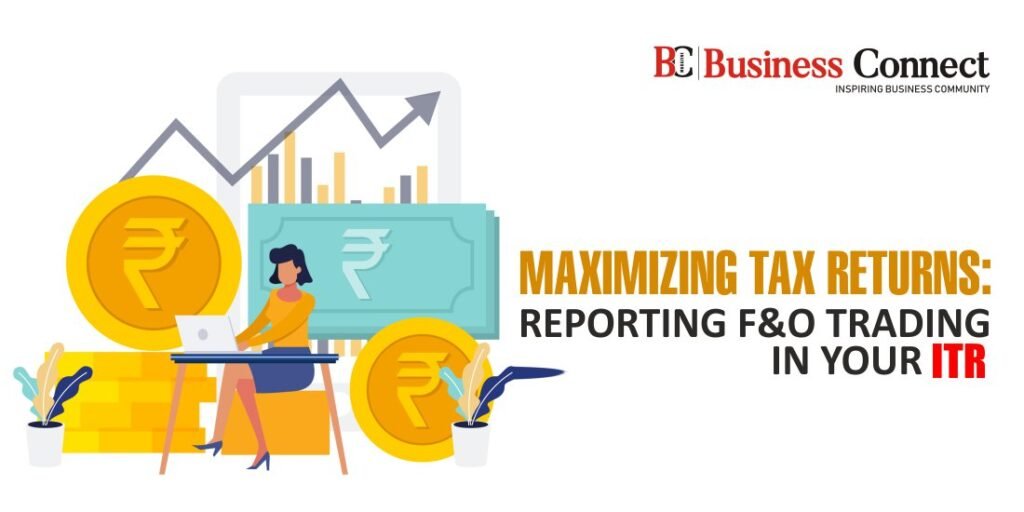Maximizing Tax Returns: Reporting F&O Trading in Your ITR
Investing brings with it waves of certainty and uncertainty in one go! Each market phase harbors distinctive characteristics, requiring a suitable approach and the discerning mindset to either limit losses or maximize gains. To succeed in the long term, investors should be patient and invest in quality stocks with strong fundamentals, as equities tend to rise over time.
When engaging in future and options trading, investors must comply with the corresponding taxation requirements. This blog will cover the fundamental structure of F&O ITR filing that should be considered. Future and Option instruments involve buying or selling an asset at a predetermined price, allowing traders to profit from price changes.
F&O trading income gets classified as either speculative or non-speculative business income, with different rules for losses and carry-forward periods. Non-speculative business income is taxed at normal slab rates, with advance tax payments required if income exceeds INR 10,000.
The ITR-3 form gets used to report profits and gains from business or profession, and tax liability is determined based on the appropriate slab rate for each person. Filing your F&O ITR on time allows you to deduct trading expenses, such as broker’s commission, Demat charges, research report costs, and depreciation of trading devices, from your earned income.
It is crucial to maintain proper records of receipts and bills for such expenses, and payments should be made via cheques or bank transfers instead of cash. In cases where an expense has both personal and business-related aspects, it is recommended to claim a reasonable portion of it as a business expense
Here are some summarized points to keep in mind when filing F&O ITR:
- To prevent getting a notice from the tax department, it’s important to disclose your gains or losses from F&O trades in your tax return.
- Even if you’re an individual or a company, trading in futures & options is typically considered business income, so it’s advantageous to report losses for tax purposes.
- If you classify your F&O trading activity as a business, you may be able to claim business expenses.
Let us dig up tax audit requirements for F&O traders based on their trading turnover:
- F&O traders with a trading turnover of up to INR 2 crores are required to undergo a tax audit if their profit is less than 6% of their turnover or if they have incurred a loss. However, if their profit is equal to or greater than 6%, they do not need to undergo a tax audit.
- Traders with a trading turnover of more than INR 10 crores are required to undergo a tax audit regardless of their profit or loss.
- Let us take note that the tax audit requirements for traders with a trading turnover in the bracket INR 2 crores up to INR 10 crores rely on their profit and whether they have picked to use the Presumptive Taxation Scheme under Sec 44AD. If their profit is less than 6% of their turnover or if they have incurred a loss, a tax audit is required.
- If traders haven’t opted for the Presumptive Taxation Scheme and their profit is equal to or greater than 6%, they need to undergo a tax audit. However, if they have opted for the Presumptive Taxation Scheme and their profit is equal to or greater than 6%, a tax audit is not necessary.
With many online taxation platforms accessible to you, you don’t have to worry too keenly about your tax compliance. The best part is that most of these platforms not only facilitate tax filing but also guide you through your investment or financial journey, maximizing your tax returns.
Must Read:-
- Top 10 shoe brands in India for men & women 2023
- Top 10 Adorable Gifts for Your Special One
- Top 10 Countries with Maximum Indian Population as Citizens
- Top 10 Small Business Statistics You Need to Know For 2023
- Top 10 highest paid CEO in the World
- Top 10 richest person of India
- Top 10 Highest Paid CEOs of India
- Top 10 Most Selling Bikes and Scooters of 2022 in India
- The Success Story of Jeff Bezos
- Success Story Of Elon Musk
- Top 10 Business Magazine In India
- Top 10 Business Newspaper In India
- Top 10 Tourist Places in India, places to visit after lockdown



